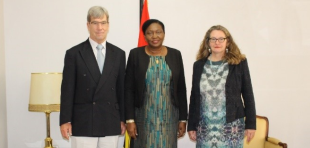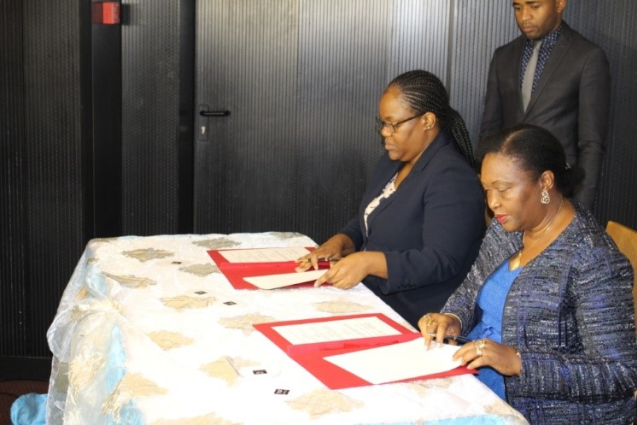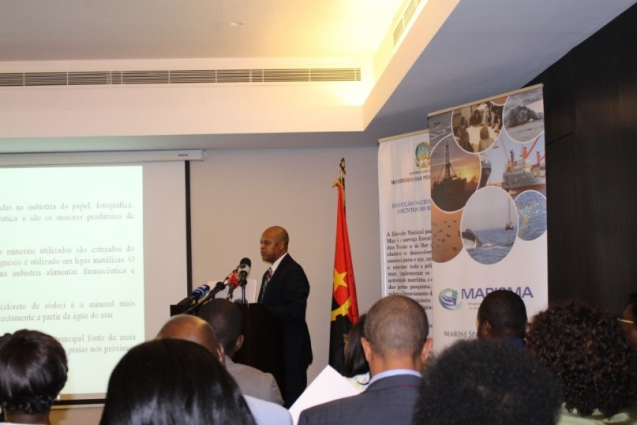Marine Spatial Planning building bridges between sectors in Angola

On World Oceans Day, history was made in Luanda, Angola when two ministries jointly highlighted the impacts of human activities on oceans and called for united action.
On 8 June 2018, Angola’s government institutes celebrated World Oceans Day for the first time to make history: During that day, the Minister of Environment, together with the Minister of Fisheries and Sea, signed an accord pledging to join forces to improve the ocean’s productivity and health. This will in turn improve the health and livelihood of the coastal communities who rely on the sea for their survival.
The high-level meeting held in Luanda was attended by the two ministers and about 100 specially invited stakeholders. It focused on Blue Economy, the institutionalisation of Marine Spatial Planning (MSP) and Ecologically or Biologically Important Marine Areas (EBSAs) in the country. The global theme of this year’s World Oceans Day, to reduce plastic, was in this context discussed as a serious concern for the health of the ocean and country at large.

For many years, the two ministries held debates on which ministry should take the lead in the management and conservation of marine resources and biodiversity. Finally, a way forward was decided upon. This occasion was historic in that both ministries agreed to work together more closely to improve coastal and marine management by fast-tracking the development of an ocean strategy and a marine spatial plan. A protocol of cooperation was signed by the two Ministers for the protection and conservation of the environment in the Angolan fishing communities.
The event, which attracted broad media attention, started with welcoming remarks by the Minister of Fisheries and Sea, Victória Francisco Lopes Cristóvão De Barros Neto and was closed by the Minister of Environment, Paula Cristina Francisco Coelho, who emphasised: ‘Angola needs to fast-track the MSP process.’ Members of the national working group presented the progress of MSP and EBSA. Angola’s EBSAs have recently been revised and new EBSAs as well as the MSP pilot area have been agreed upon. The Director of the new ‘Directorate of Sea Affairs’ also explained how the ocean can play a role in diversifying the Angolan economy, for example by promoting sustainable activities like ecotourism.

The GIZ supports Angola since 2014 in introducing MSP as well as the identification and management of EBSAs on behalf of the German Federal Environment Ministry (BMU) through the International Climate Initiative (IKI). The regional partner of the project “Conservation and Sustainable Use of the Benguela Current Large Marine Ecosystem” is the Benguela Current Convention (BCC), which has also been ratified by Namibia and South Africa. The Ministers Coelho and de Barros Neto thanked the BMU for the important support provided to Angola and the region.
The link has been copied to the clipboard
Contact
IKI Office
Zukunft – Umwelt – Gesellschaft (ZUG) gGmbH
Stresemannstraße 69-71
10963 Berlin










